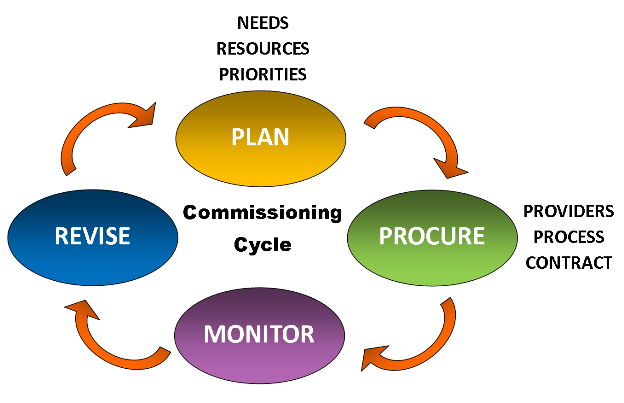What is commissioning?
Commissioning is a way in which public bodies (such as local authorities and the NHS) secure services to meet the identified needs of their local populations. For many types of services delivered by voluntary organisations, commissioning has now replaced the traditional process of awarding grants.
The commissioning process in brief:
- The public body assesses the needs of the local population and decides the sorts of outcomes that are needed to improve quality of life, health, and well-being.
- The public body invites organisations to submit proposals for projects to achieve those outcomes.
- Organisations submit tenders or applications outlining the services they want to provide to achieve those outcomes.
- The public body decides which of those services it wishes to commission, and then provides a contract to the service provider for delivery of the service.
- Both parties are then engaged in a contract with specific obligations on both parties. If the provider fails to deliver, there may be financial penalties.

Current policy on commissioning
Previous governments introduced the concept of ‘any willing provider’ – which means that when new services are developed, the commissioning process should be available to voluntary and private organisations as well as NHS organisations. The government has been continuing to open up markets to competition, so this may bring opportunities for voluntary organisations. This will also bring challenges as we will need to compete against larger organisations, which may also be better resourced.
Local commissioning
There are various departments of our local Council that commission services – such as Adult Social Care and Children & Families. Our local NHS also commissions services. To save management costs, in some areas of work commissioners are working in a unified way across Westminster, Hammersmith & Fulham and Kensington & Chelsea.
